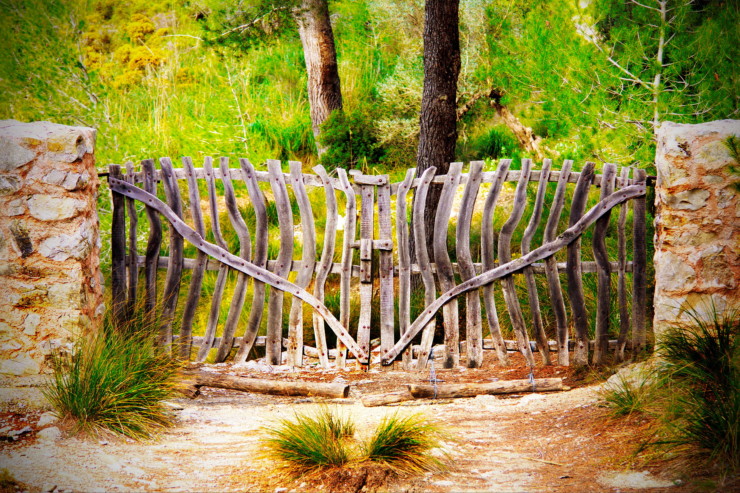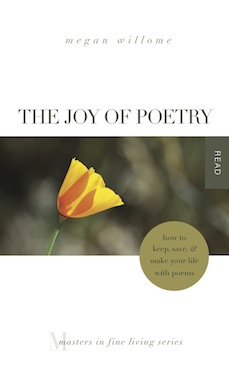At some point in school (probably middle school) the teacher asked us to rewrite William Carlos Williams’ poem This Is Just To Say. I don’t remember what I wrote, but I do remember illustrating my poem with a Frisbee.
This Is Just To Say
I have eaten
the plums
that were in
the icebox
and which
you were probably
saving
for breakfast
Forgive me
they were delicious
so sweet
and so cold
—William Carlos Williams
But rewriting this poem is a compulsion that extends beyond teachers. NPR reporter and podcaster Sam Sanders did it on Twitter last month. Because I’d been away from the news for a few days, I had no idea what fried chicken story he was talking about, but his rewrite gave me gist of it.
Sam Sanders tweet, 08/22/19
This Is Just To Say
I have been assigned
The fried chicken sandwich story
That we all
Have been talking about
And which
You were probably
Getting
Tired of
Forgive me
The memes were too strong
So absurd
And so irresistible
“This Is Just To Say” is listed among Literary Hub’s The 32 Most Iconic Poems in the English Language: Plus Some Bonus Poems, Because We Love You. (Actually, LitHub chose The Red Wheelbarrow, but included this one as one of the Because-We-Love-You selections.) Why has this 81-year-old poem been parodied enough to become a meme? Why have English teachers given the same assignment I was given for decades?
Well, we can’t overlook the fact that the poem is short. Like many of today’s Instagram poems, it’s prose-like, with no punctuation, no rhyme, and line breaks that require attention. It’s also understandable. And it holds more weight than its twenty-eight words might suggest.
Let’s take those plums, the ones “which / you were probably / saving / for breakfast.” Plums are not a typical breakfast food, not like cereal or oatmeal or bacon and eggs or something in the muffin/bagel category. If we enlarge the discussion to breakfast fruits, I’d expect to read about an orange, an apple, or what my best friend calls the ultimate fast food, a banana. But the person to whom this poem is addressed is saving plums for breakfast. Not one plum, but plums, plural. Plums “so sweet / and so cold.”
And what about our narrator, the one who has eaten those delicious plums? The narrator knows they’ve done a bad thing — they say, “Forgive me” — but they still ate the plums. Even the title, “This Is Just To Say,” conveys a sense of guilt. The words “I have eaten” sound confessional, but not regretful. It’s a sorry-not sorry vibe.
The poem’s author, William Carlos Williams, whose birthday was September 17, 1883. He was a doctor from New Jersey who did a lot of writing while walking to and from his office. Poetry Foundation says, “Some of his poems were born on prescription blanks, others typed in a few spare minutes between patient visits.” A great sideways look at Williams can be found in the movie Paterson, which Charity Singleton Craig reviewed.
Although Williams published this poem in 1938, the only word that tips us off that it’s not modern is “icebox.” (My dad still calls it that, but he also remembers leaving the farm, going into town to get ice packed in sawdust, bringing it home, and putting it in the icebox.) But I’m so glad that word is there; “refrigerator” is much more clumsy.
If I could influence today’s or tomorrow’s English teachers, I would encourage them to not only have their students rewrite this poem — a technique I sometimes use in my poetry journal, when a poem catches my eye — but to also have their students learn it by heart. After all, it’s only twenty-eight words, twenty-seven of which need no explanation.
https://soundcloud.com/megan-willome/this-is-just-to-say-by-william-carlos-williams
Your Turn
Did you memorize “This Is Just To Say” this month? Join our By Heart community and share your audio or video using the hashtags #ByHeart and #MemoriesWithFriends and tagging us @tspoetry. We also welcome photos of your handwritten copy of the poem.
By Heart for October
For the next By Heart gathering, October 25, we’ll learn “South of the Cap Rock” by cowboy poet Carlos Ashley.
South of the Cap Rock
Oh, bury me South of the Cap Rock
Halfway to the Rio Grande,
Where the eagles sail
O’er the Spanish Trail
And the tall pecan trees stand.
Oh, my dreams are South of the Cap Rock,
Where the hills and rivers rise;
Where a sun-kissed peak
On the dimpled cheek
Of a Texas plateau lies.
Oh, it’s springtime South of the Cap Rock,
And the bee-weeds blossom soon,
Where I used to ride
With my promised bride
Neath a lover’s magic moon.
Now my heart lies South of the Cap Rock,
And there’s where I want to die,
Near the Llano’s brink
Where the cattle drink
And the nesting killdees cry.
Yes, bury me South of the Cap Rock
By my love on a granite hill,
And we will sleep
While the mountains keep
Their vigil, eternal, still.
—Carlos Ashley
Photo by Val Wroblewski, Creative Commons, via Flickr. Post by Megan Willome.
Browse more By Heart
“Megan Willome’s The Joy of Poetry is not a long book, but it took me longer to read than I expected, because I kept stopping to savor poems and passages, to make note of books mentioned, and to compare Willome’s journey into poetry to my own. The book is many things. An unpretentious, funny, and poignant memoir. A defense of poetry, a response to literature that has touched her life, and a manual on how to write poetry. It’s also the story of a daughter who loses her mother to cancer. The author links these things into a narrative much like that of a novel. I loved this book. As soon as I finished, I began reading it again.”
—David Lee Garrison, author of Playing Bach in the D. C. Metro
- Perspective: The Two, The Only: Calvin and Hobbes - December 16, 2022
- Children’s Book Club: A Very Haunted Christmas - December 9, 2022
- By Heart: ‘The night is darkening round me’ by Emily Brontë - December 2, 2022


Leave a Reply